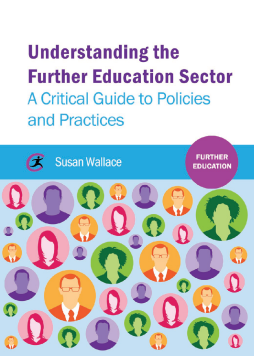
Additional Information
Book Details
Abstract
Those working towards QTLS are required to demonstrate a critical understanding of the Further Education (FE) sector and the role of the FE practitioner. This book clearly identifies, particularly for the student teacher with no prior experience, the social, cultural and political context of the sector’s beginnings and explores how this continues to shape and constrain the sector’s status and purpose, and the role and status of its teachers. The text encourages critical thinking about possible routes for change and future development. As increasing numbers of QTLS students are being encouraged to gain part of their qualification at M level, the need for an accessible and critical sourcebook about the FE sector, such as this, is essential.
Susan Wallace is the Professor of Continuing Education at Nottingham Trent University. Part of her role is to support learning on the initial training courses for teachers in the FE sector. She taught in the sector for ten years, including on BTEC programmes and Basic Skills provision. Her particular interest is in the motivation and behaviour of students in FE, and in mentoring and the ways in which a successful mentoring relationship can support personal and professional development. In her spare time she writes books, mainly aimed at teachers and student teachers in the sector.
The book's strengths are the ways in which it links policies and practices to the type of situation that new teachers may face. It is quite a useful strategy to include critical thinking activities which would help individual readers (or better still, action learning sets of readers) to engage with the implications of the text.
Paul G Daniels, Dearne College
Loved the structure of the book and the critical thinking activities!
Paul Hampton, Stafford College
I like the fact that the book was accessibly organized into sections that covered basic questions about institutional structures, pedagogy & policy debates and FE pathways. The use of case studies and bullet points, FAQs made the book accessible for undergrads and postgrads new to the field.
Paul Warmington, University of Birmingham
